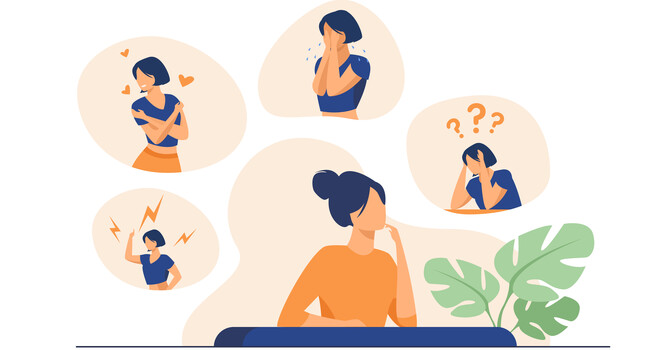
In today’s hyper-digital world, Instagram has become more than a photo-sharing platform. It’s a cultural force shaping self-perception, identity, and mental health. With over a billion monthly users, the app has significant psychological implications, especially for young adults and adolescents who are still forming their sense of self.
This blog explores the current psychological concerns tied to Instagram and offers practical strategies to help individuals cultivate healthier relationships with the platform.
The Allure of Instagram: Instant Gratification and the Dopamine Loop
Instagram operates on a model that keeps users engaged through likes, comments, and follows. These interactions trigger the brain's reward system, releasing dopamine, the feel-good neurotransmitter. This creates a loop of craving, checking, and posting in hopes of receiving validation. While this feedback may offer a short-term boost, it often leads to long-term dependency and anxiety.
Research has shown that frequent Instagram users report higher levels of anxiety, depression, and body dissatisfaction. The platform's focus on appearance and perfection can be emotionally taxing, particularly for individuals already struggling with self-worth.
Social Comparison: The "Highlight Reel" Problem
One of the most insidious psychological traps of Instagram is social comparison. Users often forget that the content they see is curated and filtered. People post their best moments—vacations, achievements, selfies with perfect lighting—while omitting the struggles, failures, or mundane aspects of life.
This skewed reality creates a mental yardstick by which people measure their own lives and find them lacking. This can result in feelings of inadequacy, envy, and lowered self-esteem. According to a study by the Royal Society for Public Health, Instagram was ranked as the most detrimental social media platform for young people’s mental health.
Body Image and Beauty Standards
Perhaps no other topic is as impacted by Instagram as body image. Influencers often promote unattainable beauty ideals, enhanced by filters, editing apps, and sometimes even cosmetic procedures. This not only distorts reality but also sets a dangerous precedent for impressionable users.
A recent internal Facebook report (leaked in 2021) revealed that Instagram makes body image issues worse for one in three teenage girls. Users reported feeling "not good enough" compared to the images they consumed, which had direct correlations with depressive symptoms and disordered eating behaviours.
The Fear of Missing Out (FOMO)
FOMO is another psychological outcome driven by Instagram. Seeing friends, influencers, or celebrities attending events, travelling, or achieving success can trigger feelings of exclusion or failure. Even when users are content in their own lives, seeing others' highlights can create the illusion that they are missing out.
This fear keeps people glued to their screens, checking stories and posts compulsively, which leads to disrupted sleep, poor concentration, and heightened anxiety.
Strategies for a Healthier Relationship with Instagram
1. Curate Your Feed Intentionally
Unfollow or mute accounts that make you feel inadequate. Instead, follow creators who promote authenticity, mental health, body positivity, and diverse lifestyles.
2. Set Time Limits
Use app settings to limit daily usage. Even a 30-minute cap can reduce negative psychological outcomes.
3. Take Digital Detoxes
Consider taking breaks from the app altogether. A weekend or week off can reset your mental space and help break the dopamine cycle.
4. Reflect Before You Scroll
Before opening Instagram, ask yourself: "Why am I opening this app right now?" Are you bored, anxious, or avoiding something? Mindful usage can reduce impulsive scrolling.
5. Follow Accounts That Normalize Real Life
Many therapists, educators, and influencers now promote unfiltered, real-life content. Engaging with these accounts can counterbalance the polished perfection typically seen on the platform.
6. Engage, Don’t Just Consume
Interacting meaningfully with posts or using Instagram to stay connected (e.g., chatting with a friend) is linked to better psychological outcomes than passive scrolling.
When to Seek Help
If you find that Instagram is affecting your mood, self-worth, or daily functioning, it may be time to speak with a mental health professional. Therapists can help unpack the deeper issues related to self-esteem, identity, and comparison and offer personalized strategies to cope.
Final Thoughts
Instagram isn’t inherently harmful, but like any tool, its impact depends on how it’s used. When approached with intention, boundaries, and awareness, it can be a space for inspiration and connection. But without these safeguards, it can easily become a silent source of stress and self-doubt.
Understanding the psychological mechanisms at play helps us regain control over our digital experiences—and our mental health.
.JPEG)
.JPEG)




